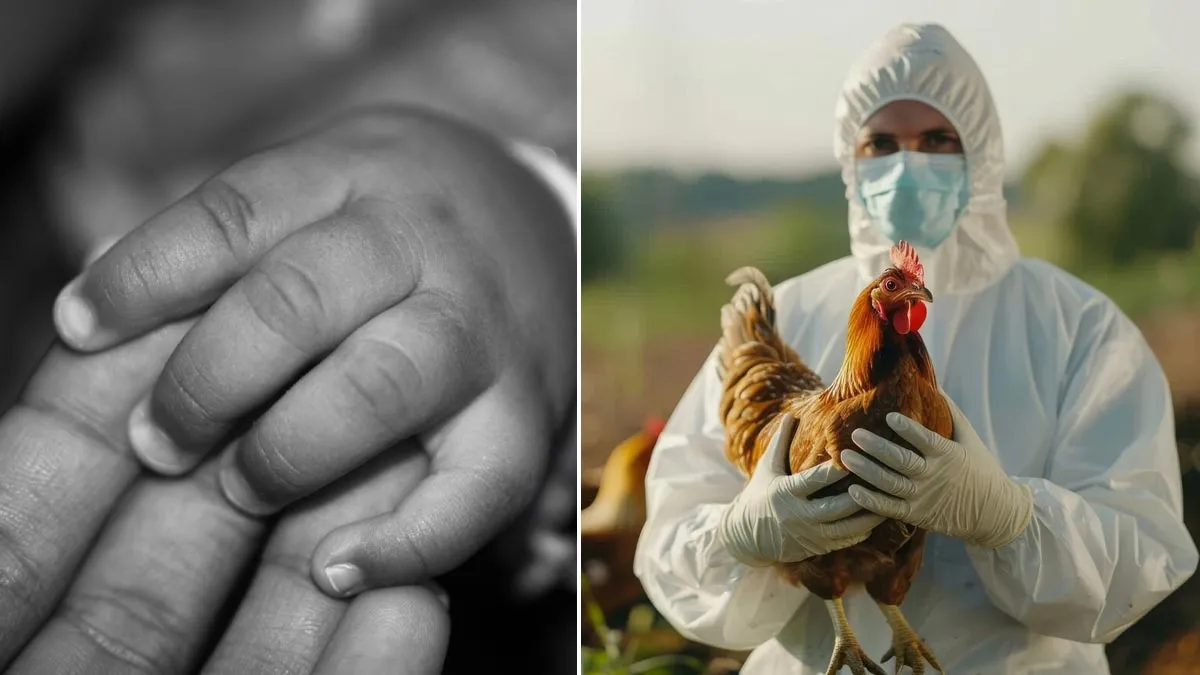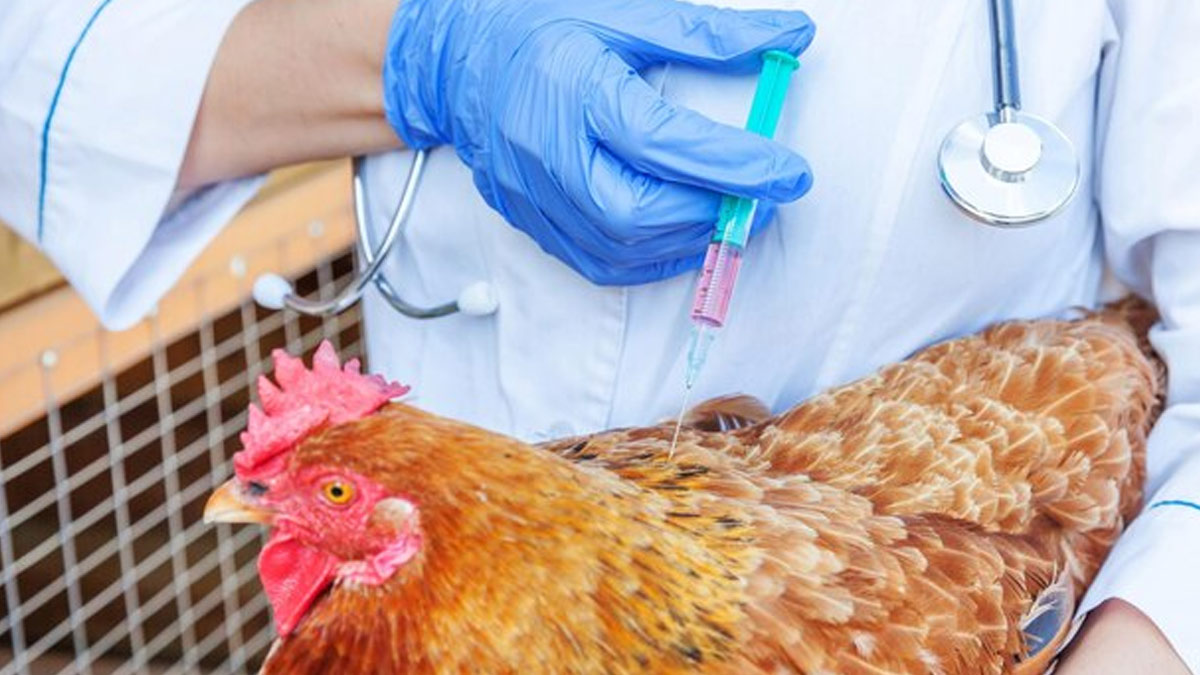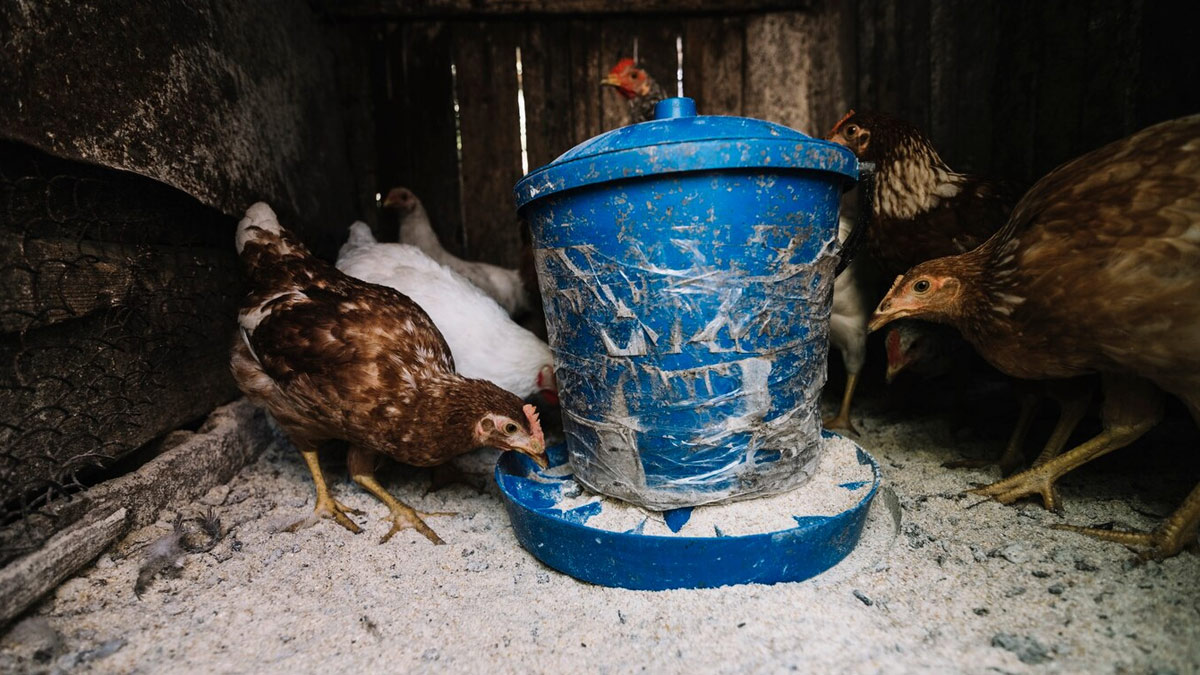
A two-year-old girl from Balaiah Nagar in Andhra Pradesh’s Palnadu district has died from bird flu (H5N1), marking the state’s first confirmed human case. Health officials suspect she consumed raw or undercooked meat from infected poultry. The child developed severe fever, cough, and breathing issues and was rushed to a local hospital. Tests confirmed H5N1 and despite treatment, she died while receiving treatment. Despite recent assurances that Andhra Pradesh was free of the virus in commercial poultry farms, the girl's death has raised concerns.
Table of Content:-
Understanding the Incident
A 2 year old girl in Andhra Pradesh died of bird flu (H5N1) after eating raw chicken, marking the state's first human death from the virus on March 16, 2025. Health officials urge cooking poultry thoroughly to prevent spread. 🚨🍗🩺
— Karunakar Shettigar 🌟 (@KarnaShettigar) April 3, 2025
The girl fell ill after eating a piece of raw chicken on February 26, as per reports. Her parents, who had cooked their own chicken, did not contract the virus, emphasising the importance of proper cooking to prevent infection. The child was initially taken to a local hospital and later transferred to AIIMS Mangalagiri on March 4. Tests confirmed she had Influenza A, and further analysis by the Indian Council of Medical Research (ICMR) and the National Institute of Virology (NIV) in Pune identified the H5N1 virus as the cause of her illness.
What Is H5N1?

H5N1, or avian influenza, is a virus that mostly infects birds. Humans rarely catch it, but cases are often deadly. The WHO says over 50% of infected people die. It spreads through direct contact with sick birds or their droppings. Eating properly cooked poultry is safe, but raw meat or eggs pose risks. It has recently spread to Europe, North America, and other regions, affecting various species, including dairy cattle. While human-to-human transmission is uncommon, experts are closely monitoring the virus due to its adaptability and potential for mammal-to-mammal transmission.
Why Eating Raw Meat Can Be Dangerous
Eating raw or undercooked meat can be risky because it may contain harmful bacteria, viruses, or parasites. These include Salmonella, E. coli, and even viruses like H5N1 (bird flu), which can cause severe infections. Cooking meat properly kills these germs, making it safe to eat. Consuming raw meat increases the chances of food poisoning, stomach infections, and, in rare cases, life-threatening diseases.
ALSO READ: Bollywood Veteran Dharmendra Undergoes Corneal Transplantation: Exploring The Eye Surgery
H5N1 in India

India reported its first H5N1 case in 2006. Outbreaks usually occur in winter when bird migration increases. Andhra Pradesh last saw bird flu in poultry in 2020, but no human cases were reported until now. The WHO states H5N1 doesn’t spread easily between humans. However, experts fear the virus could mutate and cause a pandemic.
H5N1 Prevention Tips
Preventing infections requires minimising contact with infected birds and contaminated environments. Some of the other prevention tips by health officials are mentioned below.
- Avoid raw milk and unpasteurised cheese. Dairy cows can transmit the virus through their milk, but pasteurisation kills harmful bacteria and viruses.
- Bird flu can survive in undercooked food. Follow a proper method to cook eggs, poultry, and meat at safe temperatures.
- Keep pets away from sick or dead birds. Avoid giving them raw milk, unpasteurised dairy products, or raw pet food. Consult your vet about vaccines for pets.
- Do not touch sick or dead birds or livestock. Bird flu spreads through the saliva, faeces, and mucus of infected animals. Report sick birds to wildlife officials.
- Wash your hands thoroughly after handling anything that may have been exposed to birds. This is the easiest way to prevent infection.
- Farm workers should wear masks and gloves when handling livestock and participate in testing programs. Everyone should stay informed about public health updates.
ALSO READ: Expert Shares Best Seeds To Turn Your Gut Health Around
Conclusion
This tragic death highlights the dangers of H5N1 in areas with poor food safety practices. While human cases remain rare, experts stress vigilance. Cooking meat thoroughly and reporting sick birds can prevent future outbreaks. Authorities continue monitoring the region to ensure the virus doesn’t spread further.
Also watch this video
Read Next
Healthcare Heroes 2025: Panelists Discuss Al and Cancer In Revolutionising Diagnosis and Treatment
How we keep this article up to date:
We work with experts and keep a close eye on the latest in health and wellness. Whenever there is a new research or helpful information, we update our articles with accurate and useful advice.
Current Version